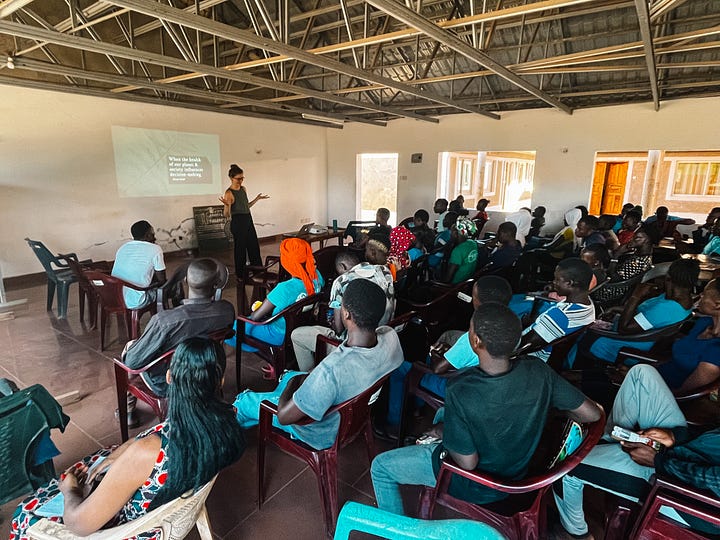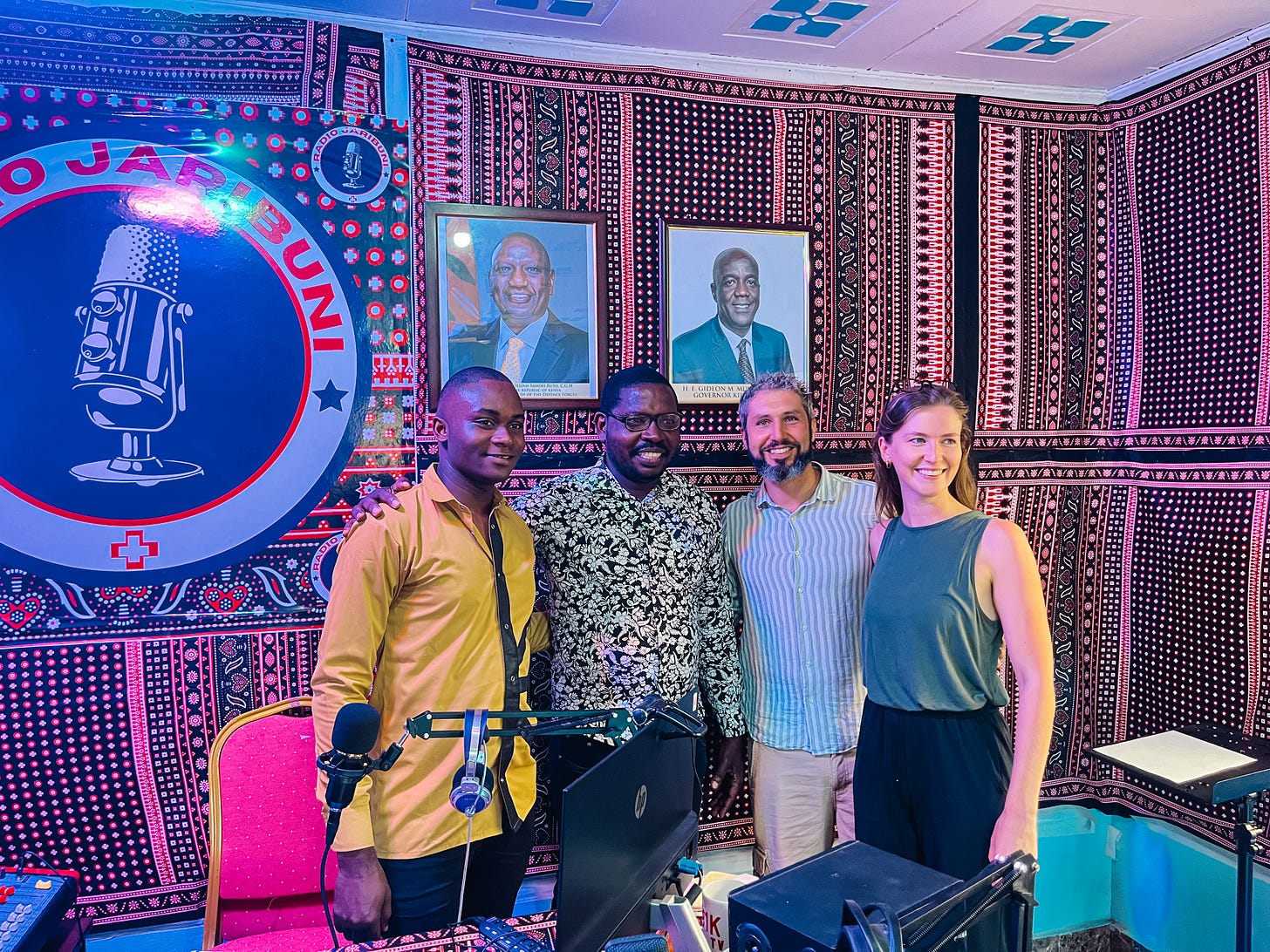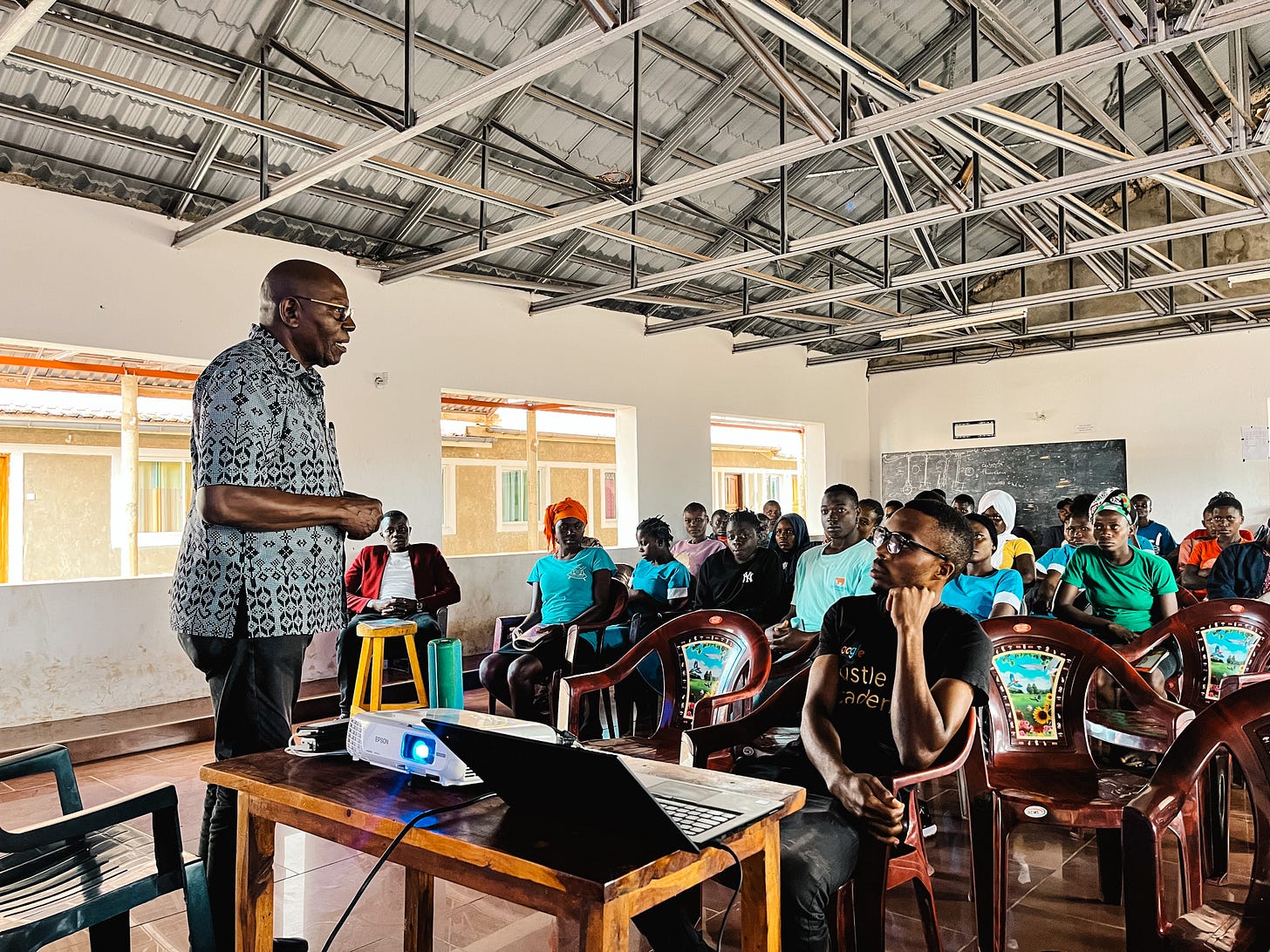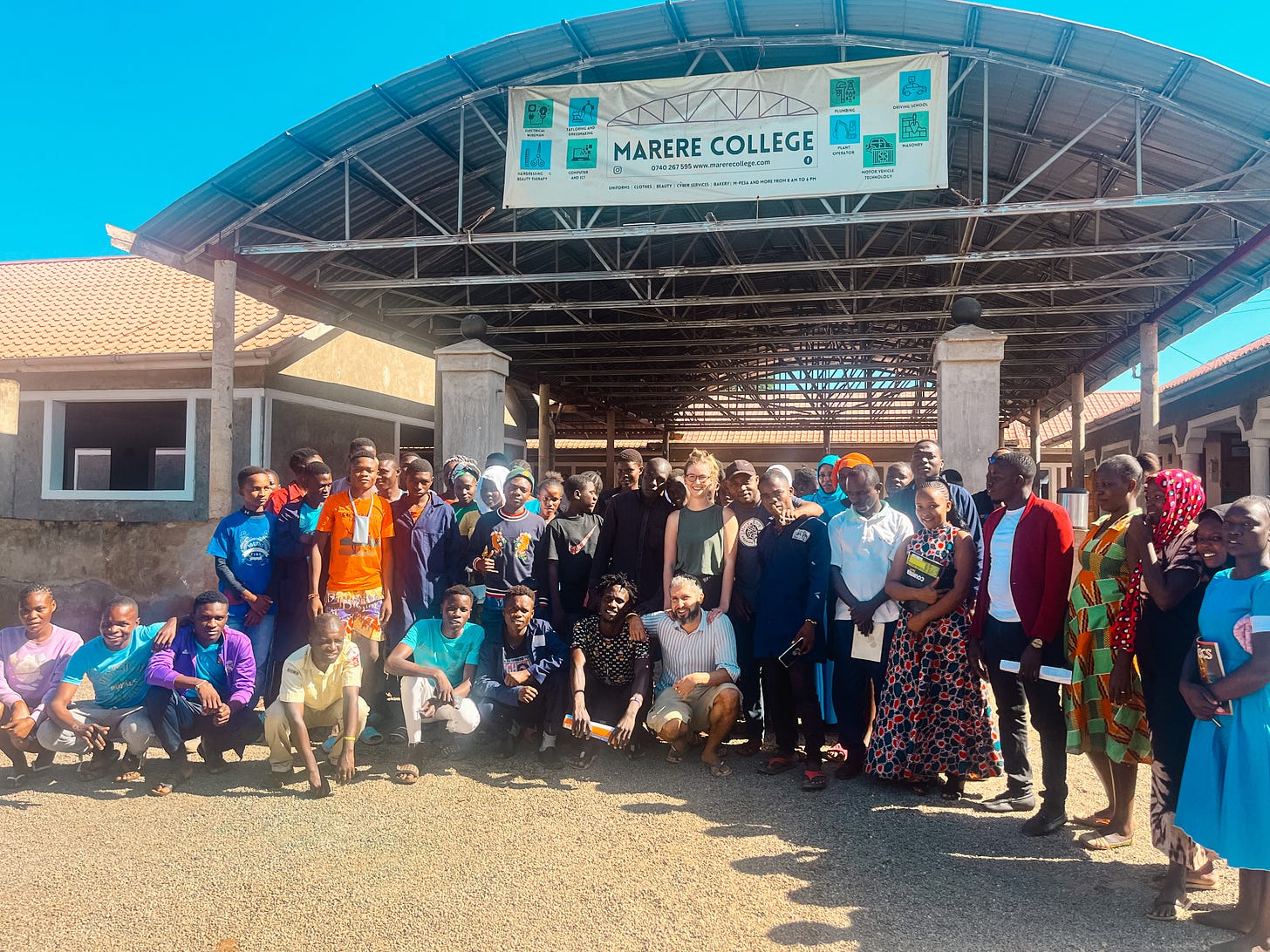From what we have seen so far in Uganda, Rwanda, and Kenya, education is one of the most important aspects when it comes to addressing the challenges on the African continent. Africa is the continent with the youngest population worldwide. According to the UN, 70% of sub-Saharan Africa is under the age of 30. That is such a huge amount of people who need to be empowered through education, in order to be included in future decision-making, and so that they can access opportunities for work and innovation. We have spoken to many young Ugandans and Kenyans during the last few months and the same topic of conversation always comes up - how difficult it is to access education, and when you are lucky enough to get an education, how difficult it is to find a job. “How is it for youths in your country finding jobs?”, we’ve been asked on countless occasions. All of the people we have spoken to fully believe that education is a path to a better life. Through these many discussions we have had, we have learned about two main challenges young Africans face.
Challenges facing young Kenyan’s
The first challenge for Kenyan’s is the cost of accessing basic education. Kenya's constitution guarantees every child the right to free basic education (by law); however, the government funding is not sufficient and the difference has to be covered by parents - similar to what we have seen in Uganda. The amount of services covered by parents varies by school and region, which means it is difficult to get an accurate unit cost for a student's education in Kenya. One study found that public schools in Nairobi collect an average of USD 46 per year per child to bridge the gap to pay for uniforms, food, buildings, extra tuition, examinations, textbooks, exercise books, transport, and all kinds of administrative costs.
As for tertiary education, the tuition fees for public universities in Kenya can range from EUR 300 to EUR 500 per year, depending on the program and the university. Private institutions are also a possibility, at even higher costs of course. For reference, the average salary per month in Kenya is EUR 130.
The second challenge is entering the job market. Now, even if young families bring their child through the basic education system and even manage to finance a tertiary degree, this doesn’t mean that a job is guaranteed. Many graduates struggle to get a job after their studies as the market is oversaturated. We met a lot of young graduates that are not working in their area of education, but instead try their luck in the tourism industry or even as TukTuk & Boda-Boda drivers. So if that’s the situation for the educated, you can imagine how challenging it is for those who are not educated, or who have only partially completed their schooling.
Introducing Marere College
Marere College in Kilifi County aims to address some of these challenges. Marere College was founded by Peter Safari Shehe (an ex- and possible future member of the Kenyan parliament), and Barbara Fuhrer (Dominik’s marketing teacher in Switzerland 20 years ago). Barbara and Peter kindly invited us to visit the college and stay for a couple of days while we were in the area of Kilifi, and of course we took them up on the offer. Unfortunately Barbara was in Switzerland, but we had the absolute pleasure to meet and spend time with the legend that is Peter Shehe. Soft-spoken and extremely charming, Peter is a native of Jaribuni in Kilifi County. The land upon where the college is built is the land he inherited from his ancestors. He spent 23 years in Switzerland, and is very much Swiss as he is Kenyan, speaking fluently Swiss German and having Aromat, a Jura coffee machine, and Tchibo coffee at hand. Peter eventually left Switzerland and returned to his homeland, serving as a member of parliament between 2013 and 2017. Peter is now an elected member of the county assembly, active in various committees, and is the backbone of the community of Jaribuni - his phone never stops ringing!
What Peter has managed to bring to life on his ancestral land is phenomenal. Peter saw a need for vocational and skills training in the area. Many young people were without secondary education (due to challenges we mentioned above), and access to skills training was non-existent. Marere college, which was founded by his wife Barbara’s NGO Pro Ganze in 2021, provides vocational training in different areas such as ICT (Information, Communication, Technology), electrical & electronics, tailoring/dress-making, hairdressing & beauty therapy, plumbing and mechanics. Most of the students in attendance are receiving financial aid, and there is onsite childcare available for young mothers - an initiative that was pushed by Barbara to address the issue of young mothers being excluded from vocational education due to childcare constraints. Marere also houses a radio station and a bakery, as well as a small farm and some farm animals.
While we were at Marere we decided to give some presentations to the students, covering some new topics and resources that they would not previously have had access to. Access to information and knowledge is extremely unequally distributed, and contributing with an outside perspective is not to be underestimated. With the help of some slides we put together, we presented on the topic of entrepreneurship, climate change impacts, and discussed frameworks to inform decision-making. Dominik also shared some personal insights from his entrepreneurial journey, and we made ourselves available for interactions with some of the students and staff after our presentations. The interactions we had with both the students, the staff, and Peter were remarkably enriching.


But that's not all – we mentioned that Marere houses their very own online radio station! It’s called “Radio Jaribuni” and they graciously invited us for an interview, asking us about our African adventures, getting us to share some insights on cultural exchanges, and of course the topic of the job market came up - it always does. You can catch interview right here.


It was truly inspiring to experience this incredible community asset that Peter and Barbara have built over the past few years. This place not only offers young minds fresh horizons and opportunities, but it also fosters an environment that nurtures personal growth and development. If you wold like to get a deeper insight into Marere College and the endeavors that Barbara, Peter, and team are undertaking, you can follow Barbara’s blog. It’s in German, but there is an audio version available in English and Swiss German - another great example of Barbara’s efforts towards inclusion.
Further information:









